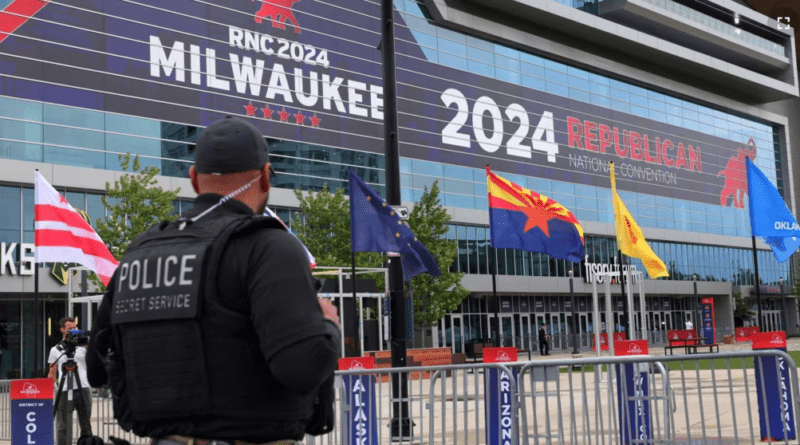The Republican Party convention in Milwaukee: the political context
The Republican Party convention opens Monday in Milwaukee, Wisconsin. The purpose of the convention is to officially nominate Donald Trump for president. This comes shortly after an assassination attempt on him took place. Amid the incident, both Trump and incumbent President Joe Biden have called on the country for national unity and calm.
Trump will announce at the convention who he has chosen for vice president. He is considering Ohio Senator J.D. Vance, Florida Senator Marco Rubio and North Dakota Governor Doug Burgum as candidates, each of whom will speak at the convention. According to two knowledgeable sources, Trump held meetings with each of them late last week.
“It’s a chance to bring the whole country, even the whole world, together. The convention speech will be very different, very different from what it would have been two days ago,” Trump told the Washington Examiner.
Biden, speaking on television on Sunday, emphasized: “There is no place in America for this kind of violence, any violence. Period. There are no exceptions. We cannot allow this violence to become the norm.”
He added: “The political rhetoric in this country has gotten very heated. It’s time to tone it down.”
According to most public opinion polls, including Reuters/Ipsos, Trump and Biden have very close ratings.
House Speaker Mike Johnson emphasized, speaking on NBC on Sunday, that all Americans need to exercise restraint. He accused the Biden campaign of excessive attacks on Trump.
“Everybody needs to tone down the rhetoric,” Johnson said.
Biden condemned the assassination attempt on Trump. He ordered an investigation into the incident Saturday at a rally in Butler, Pennsylvania, in which a bullet grazed Trump’s right ear, killing one supporter and wounding two others before Secret Service agents shot and killed a 20-year-old suspect.
The motives for the shooting have not yet been determined.
Biden’s campaign staff has not commented on claims by some Republicans that his comments contributed to the atmosphere in which what happened was possible.
In his campaign speeches, Trump has often resorted to harsh rhetoric, using phrases such as “bloodbath,” calling his perceived enemies “vermin” and “fascists” and unsubstantiatedly accusing Biden of conspiring to undermine the U.S. by encouraging illegal immigration.
In an internal memo to staffers at the headquarters, which was made available to Reuters, its chiefs, Chris LaCivita and Susie Wiles, said the headquarters would take extra security measures in the wake of the assassination attempt. They also urged staffers to refrain from using “dangerous rhetoric.”
Both Biden and Trump have repeatedly emphasized the importance of revitalizing the USA industrial base. In Wisconsin, where manufacturing accounts for 16% of total employment, about twice the national average, this is especially important.
Unionized workers, who account for 10% of all jobs nationally and 7.4% in Wisconsin, have long held a variety of political views, but were generally considered staunch Democrats. That’s not the case now. Trump and his populist protectionist policies, which have included tariffs on Chinese goods, among other things, have helped a number of union workers switch to the Republican side.
“Joe Biden is the most pro-union president in American history, the first president to walk the picket line, a defender of more than a million pensions, and a defender of workers against greedy corporations,” a Biden campaign spokesperson emphasizes.
A Trump campaign spokesman says the former president has made “historic gains among longtime Democratic voters, including African-Americans, young people and union workers.”
